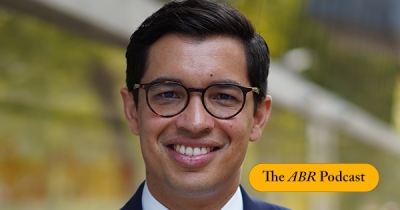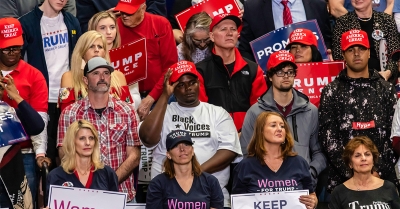Accessibility Tools
- Content scaling 100%
- Font size 100%
- Line height 100%
- Letter spacing 100%
Michael L Ondaatje
The ABR Podcast
Released every Thursday, the ABR podcast features our finest reviews, poetry, fiction, interviews, and commentary.
Subscribe via iTunes, Stitcher, Google, or Spotify, or search for ‘The ABR Podcast’ on your favourite podcast app.
The red thread: Xi Jinping’s ideology of power
by Neil Thomas
This week on The ABR Podcast, Neil Thomas reviews On Xi Jinping: How Xi’s Marxist Nationalism is shaping China and the world by Kevin Rudd. Thomas explains that even China watchers find it hard to be clear on the thoughts and plans of the leader of the Chinese Communist Party. They disagree, he tells us, on basic, critical questions, such as for how long Xi will rule. ‘Enter Kevin Rudd’, Thomas writes. ‘In his latest book, former prime minister Kevin Rudd adds a worthy new chapter to his life of public service, digesting thousands of pages of “Xi Jinping Thought” so that you do not have to’. Neil Thomas is a Fellow on Chinese Politics at Asia Society Policy Institute’s Center for China Analysis in Washington DC. Here is Neil Thomas with 'The red thread: Xi Jinping's ideology of power' by Neil Thomas, published in the December issue of ABR.
Recent episodes:
In this week’s ABR Podcast, Peter Rose speaks to Michael L. Ondaatje (Professor of History at the Australian Catholic University) about black American voters’ attitudes towards Donald Trump and the Republican Party. They also discuss recent startling developments in an already tumultuous presidential election.
Michael L. Ondaatje’s article ‘Black and Republican in the age of Trump’ is one of a series of commentaries funded by the Copyright Agency’s Cultural Fund. It appears in the October issue.
... (read more)While on the campaign trail against Hillary Clinton in 2016, Donald Trump appeared to deviate from a scripted speech he was delivering in Dimondale, Michigan. What followed was remarkable: ‘At the end of four years, I guarantee you that I will get over ninety-five per cent of the African-American vote. I promise you.’ Undaunted by six decades of black voting behaviour and his own poor standing with African-Americans, not to mention the fact that he had yet to defeat Clinton, Trump promised a ‘new deal for black America’ that would spark a decisive black shift to the Republican Party. African-Americans had long been the nation’s most partisan racial group: since 1964, no Republican presidential candidate had won more than thirteen per cent of the black vote, and no Democrat less than eighty-two per cent. Yet Trump, a man with a long and divisive racial history, vowed that he would soon rival Barack Obama for electoral appeal among African-Americans.
... (read more)


